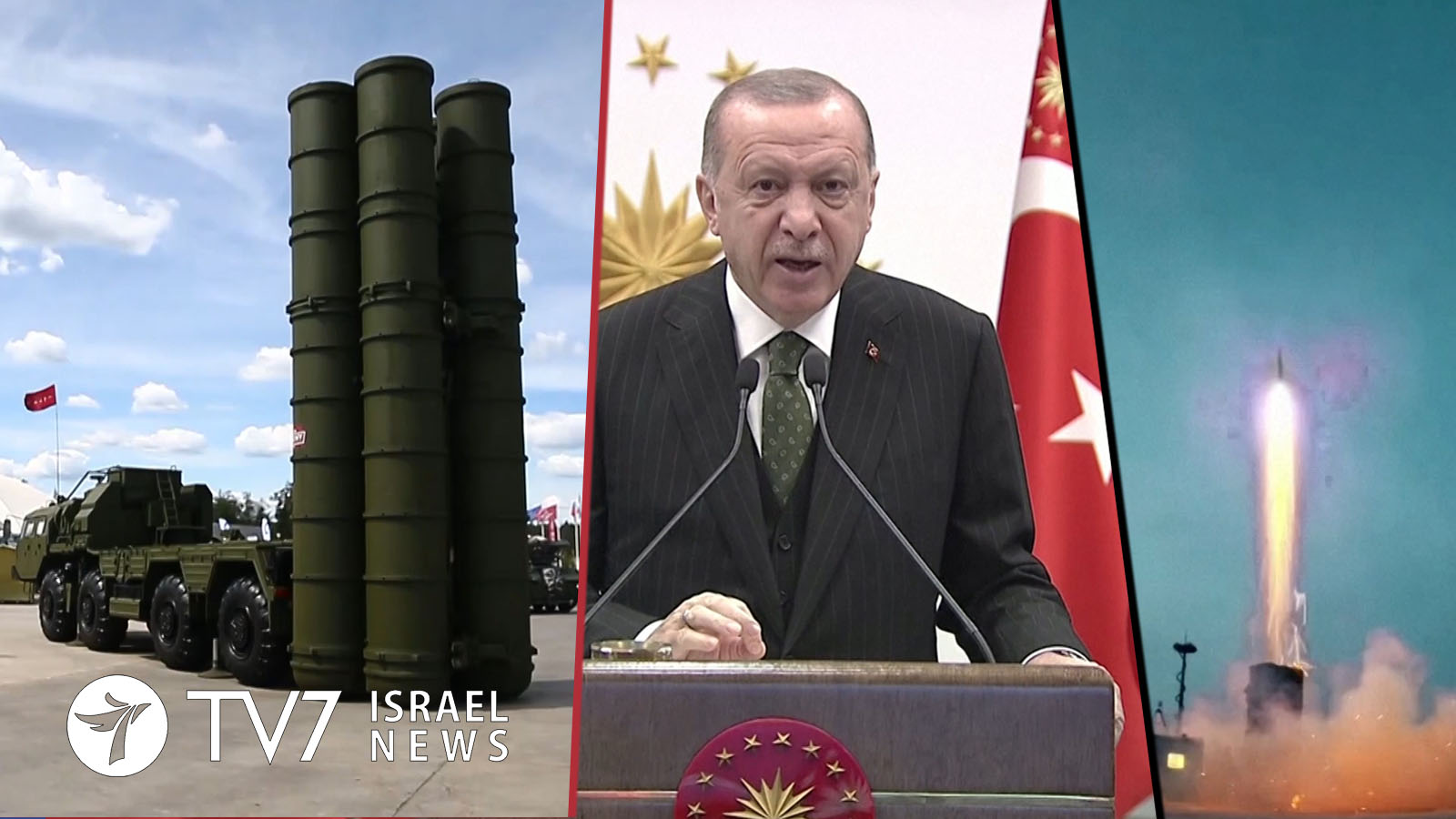Turkey will not reverse its acquisition of Russian S-400 missile defense systems, and intends to take ‘reciprocal steps’ after assessing sanctions imposed by the United States over the deal, declared Turkish Foreign Minister Mevlüt Çavuşoğlu.
Washington on Monday slapped punitive economic sanctions on fellow NATO member Ankara’s Defense Industry Directorate (SSB), SSB head Ismail Demir, and three other staff for purchasing the S-400s.
Turkey rejects White House claims that the S-400s pose a threat to American F-35 fighter jets and to NATO’s broader defense systems; and assert that the S-400s will not be integrated into NATO.
President Recep Tayyip Erdoğan denounced the US sanctions as a “hostile attack” against his nation’s defense industry, and insisted the measures would fail.
Çavuşoğlu said Turkey’s response would be shaped by an evaluation undertaken by the defense sector, Foreign and Justice Ministries, into the sanctions’ impact. “We will surely take our steps in line with these,” he told broadcaster Kanal 24. “It’s not important whether the sanctions are soft or harsh, sanctions in themselves are wrong,” he said.
“Looking at the content of the sanctions, these are not measures that will shake us to the core or impact us very much.”
Turkey says it bought the Russian S-400s out of necessity as it was unable to get defense systems from a NATO ally on satisfactory terms. “If there was to be a step back, it would have happened by now,” Çavuşoğlu added.
SSB Chairman Ismail Demir also downplayed the US sanctions, saying they would not affect existing contracts and targeted only a limited number of Turkish companies. “For instance, a company where the SSB hold a majority stake may be impacted, but there are close to no such firms. There are no such firms on critical projects,” he told the state-owned Anadolu news agency,
The sanctions come at a precarious moment as US Democratic President-elect Joe Biden prepares to be sworn into office on 20 January in place of outgoing-Republican incumbent Donald Trump.
Turkey’s top diplomat insisted that for relations to improve, Washington must first address Ankara’s opposition to American support of Syrian Kurdish fighters and its demand that a U.S.-based cleric be extradited on allegations of organizing a 2016 coup attempt.
“If the United States thinks strategically, they need Turkey very much. They say this, but they must do what is necessitated by this,” maintained Çavuşoğlu.
In related developments, Turkey will extend all possible support to Iraq in efforts to eliminate the PKK terror group.
“We have always defended Iraq’s territorial and political integrity and will continue to do so. We want all terrorist organizations to be cleared from Iraq. We gave concrete support to Iraq’s fight against Daesh,” Çavuşoğlu told his visiting Iraqi counterpart on Wednesday, 16 December.
After reiterating Ankara’s support of Baghdad’s battle against the Islamic State (also known as Daesh/ISIS), Çavuşoğlu stressed Ankara’s objective of purging all terrorists from Iraq. “We do not want Iraq to be a conflict zone between various parties or countries,” he added, underscoring the importance of regional stability.
On the PKK’s recent attacks in Iraq and Syria, the Turkish diplomat said the terror group’s assaults on the Kurdish population in the two countries proves that “The PKK terrorist organization does not represent the Kurds and above all [it is] the enemy of the Kurds. They attack all Kurds in Turkey, Syria, and Iraq who do not obey them” which “is why they attacked the Kurds in northern Iraq recently.”
Çavuşoğlu went on to state that PKK and YPG are the same terror group which attack everyone regardless of they are Aramis, Ezidis, Arabs, Sunni or Shia.
The PKK has been designated a terrorist organization by Turkey, the US and the European Union. Its more than 30-year terror campaign against Turkey has claimed the lives of 40,000 people, including women, children, and infants. The YPG is the PKK’s Syrian offshoot.
The PKK managed to establish a foothold in the Sinjar district of the Nineveh province in 2014 under the pretext of protecting the Ezidi community from Daesh/ISIS terrorists.
Following the signing of the so-called Sinjar Deal under the auspices of the United Nations, Iraqi security forces launched a campaign on 1 December to expel the PKK, enhance security and enable displaced residents to return home.
Turning to another regional conflict, Iraqi Foreign Minister Fuad Hussein said his nation expects to participate in discussions over the future of its eastern neighbor Syria, saying, “We expect the situation in Syria to stabilize, and we also want Iraq to take part in the Syrian meetings because, as I said, the developments there directly affect us in Iraq.”
